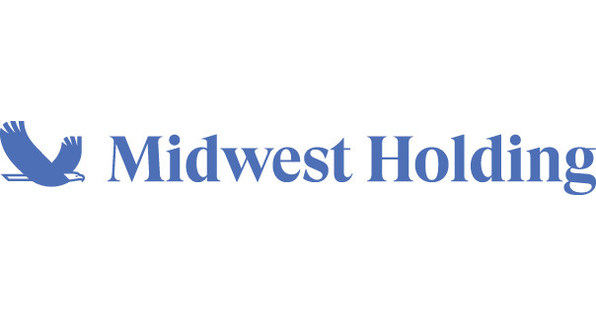Favorable Conditions Drive Growth in Turkish Non-Life Insurance Market in 2025
The Turkish non-life insurance market is demonstrating strong resilience and improved profitability in 2025, driven by a stabilizing macroeconomic environment and disciplined pricing strategies. According to Fitch Ratings, operating performance in the sector is expected to improve significantly as inflation falls and interest rates create more favorable investment conditions.
Following years of economic unpredictability, Türkiye’s insurers are seeing benefits from stronger underwriting practices and rising premiums. While risks persist—particularly in motor liability insurance—key segments such as health, auto, and property insurance are fueling robust revenue growth.
Turkish Non-Life Insurance Strengthened by Easing Inflation and Higher Interest Rates
One of the most favorable trends for Turkish non-life insurance in 2025 is the steady decline in inflation. As of May 2025, Türkiye’s inflation rate dropped to 35%, the lowest since 2021, down from 44% in 2024.
This reduced inflation is helping contain claims costs, especially in high-frequency areas like motor and health insurance. At the same time, elevated interest rates held by the Central Bank are boosting investment income across insurers’ fixed-income portfolios.
Together, these economic conditions allow insurers to better manage operating costs, enhance profitability, and strengthen their balance sheets—key ingredients for long-term stability.
Premium Growth Surges Across Turkish Non-Life Insurance Segments
The Turkish non-life insurance sector experienced a remarkable 73% growth in premium revenue in 2024, led by rapid expansion across several major lines:
Health Insurance
With rising demand for private healthcare access, health insurance continues its upward trajectory. Customers increasingly expect broader provider networks and faster service, prompting insurers to enhance coverage options and innovate with digital health tools.
Automobile Insurance
Even with persistent challenges in the motor liability segment, auto insurance premiums are growing due to increased vehicle sales and stricter enforcement of mandatory coverage. This trend supports the long-term growth of the line despite regulatory pricing limitations.
Property Damage Insurance
Türkiye’s revival in construction activity and growing awareness of catastrophe risk—particularly earthquakes—is driving greater demand for property damage insurance. This line is especially important in Türkiye’s risk-sensitive landscape.
These key lines not only generate the highest revenues but also benefit from improved underwriting discipline, digital tools, and risk-based pricing models, ensuring continued profitability.
Turkish Non-Life Insurance Faces Pressure in Motor Liability
Despite the sector’s general strength, the motor liability insurance line continues to struggle. Regulatory constraints on pricing, coupled with historically high loss ratios, have made profitability elusive.
Key challenges include:
High frequency of claims and repair costs
Government-imposed pricing limits
Inability to fully reflect risk in premium calculations
To manage these risks, Turkish insurers are investing in improved claims processing, digital underwriting platforms, and stronger collaborations with service providers. Still, without changes to pricing regulations, motor liability will likely remain a drag on performance.
Strategic Priorities for Turkish Non-Life Insurance Companies in 2025
To make the most of current opportunities while addressing persistent risks, Turkish insurers are aligning their strategies across several high-priority areas:
Digital Transformation
Firms are increasing investments in AI, mobile platforms, and automation tools to streamline operations, reduce costs, and enhance customer service.
Risk-Based Pricing and Product Diversification
Insurers are expanding into niche markets and tailoring premiums using more advanced risk analytics, particularly in health and property sectors.
Capital Management and Reserves
With economic volatility still a concern, insurers are boosting reserves and maintaining conservative investment portfolios to weather potential shocks.
Regulatory Compliance and Corporate Governance
As Türkiye’s financial sector aligns more closely with global standards, insurers must continue adapting to updated regulatory frameworks while maintaining transparency and governance.
These focus areas will be essential in ensuring that Turkish non-life insurance remains competitive, resilient, and responsive to changing market dynamics.
Positive Outlook for the Turkish Non-Life Insurance Market
Despite ongoing macroeconomic risks and specific regulatory hurdles, the outlook for the Turkish non-life insurance market in 2025 remains optimistic. Falling inflation, strong top-line growth, and favorable interest rates are creating an environment ripe for improved profitability.
Fitch Ratings projects that, with continued economic stabilization and strategic execution by insurers, the sector could sustain double-digit growth and stronger profit margins over the coming year.
Conclusion: Turkish Non-Life Insurance Poised for Sustainable Growth
In 2025, the Turkish non-life insurance industry is entering a period of renewed stability and expansion. Backed by declining inflation, rising investment income, and premium growth in core business lines, insurers are better equipped than ever to deliver positive financial results.
By embracing digital tools, refining risk selection, and navigating regulatory challenges, Türkiye’s non-life insurers are proving that they can not only survive but thrive in a complex market. With the right focus and continued economic support, the future of non-life insurance in Türkiye looks increasingly promising.

